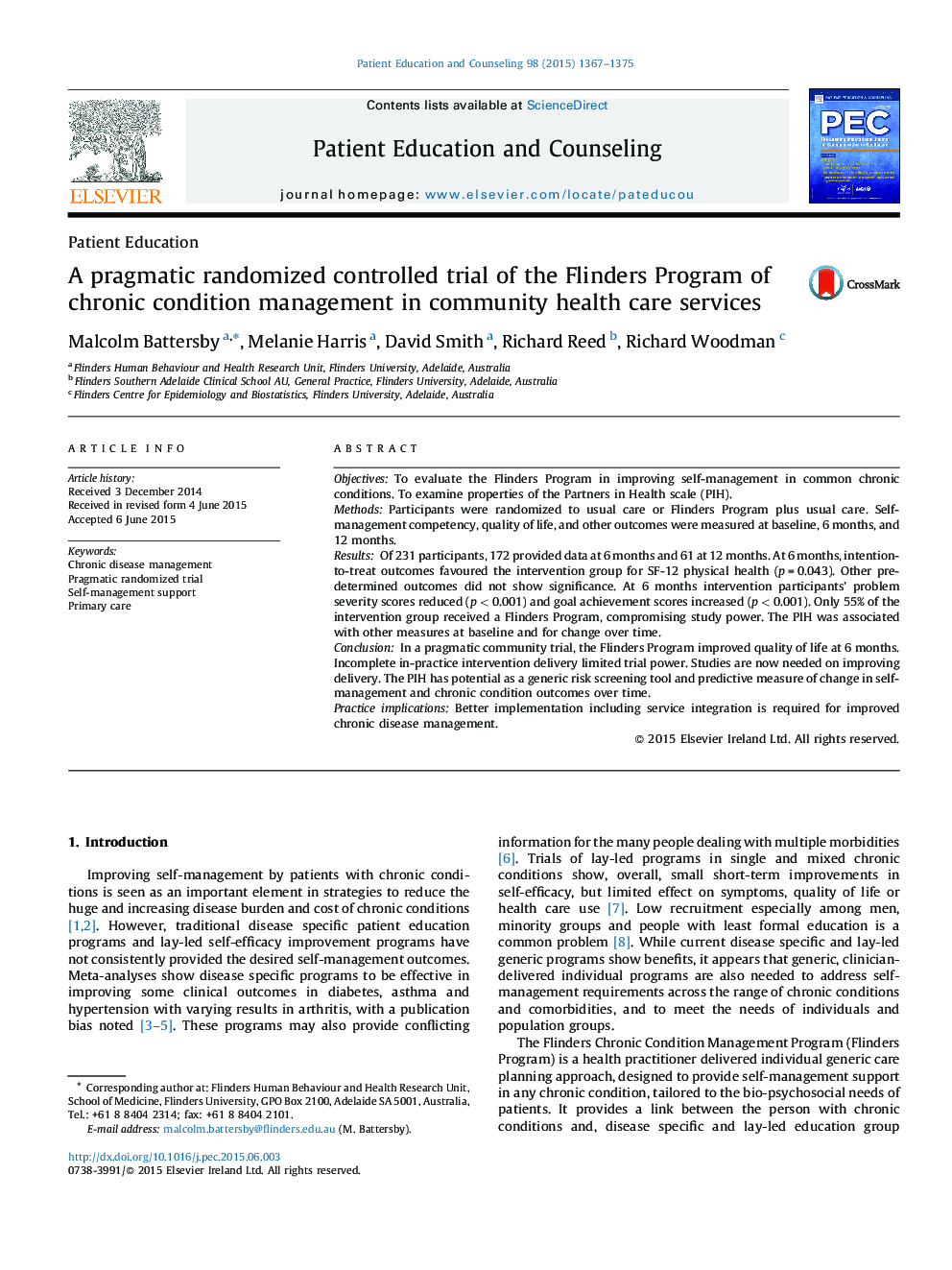| Article ID | Journal | Published Year | Pages | File Type |
|---|---|---|---|---|
| 6152858 | Patient Education and Counseling | 2015 | 9 Pages |
â¢The Flinders Program improved quality of life in a range of chronic conditions.â¢The Partners In Health scale can be used to measure chronic disease self-management.â¢In-practice delivery of self-management and coordination programs appears inadequate.â¢Better quality of delivery is needed so patients can benefit from such programs.
ObjectivesTo evaluate the Flinders Program in improving self-management in common chronic conditions. To examine properties of the Partners in Health scale (PIH).MethodsParticipants were randomized to usual care or Flinders Program plus usual care. Self-management competency, quality of life, and other outcomes were measured at baseline, 6 months, and 12 months.ResultsOf 231 participants, 172 provided data at 6 months and 61 at 12 months. At 6 months, intention-to-treat outcomes favoured the intervention group for SF-12 physical health (p = 0.043). Other pre-determined outcomes did not show significance. At 6 months intervention participants' problem severity scores reduced (p < 0.001) and goal achievement scores increased (p < 0.001). Only 55% of the intervention group received a Flinders Program, compromising study power. The PIH was associated with other measures at baseline and for change over time.ConclusionIn a pragmatic community trial, the Flinders Program improved quality of life at 6 months. Incomplete in-practice intervention delivery limited trial power. Studies are now needed on improving delivery. The PIH has potential as a generic risk screening tool and predictive measure of change in self-management and chronic condition outcomes over time.Practice implicationsBetter implementation including service integration is required for improved chronic disease management.
